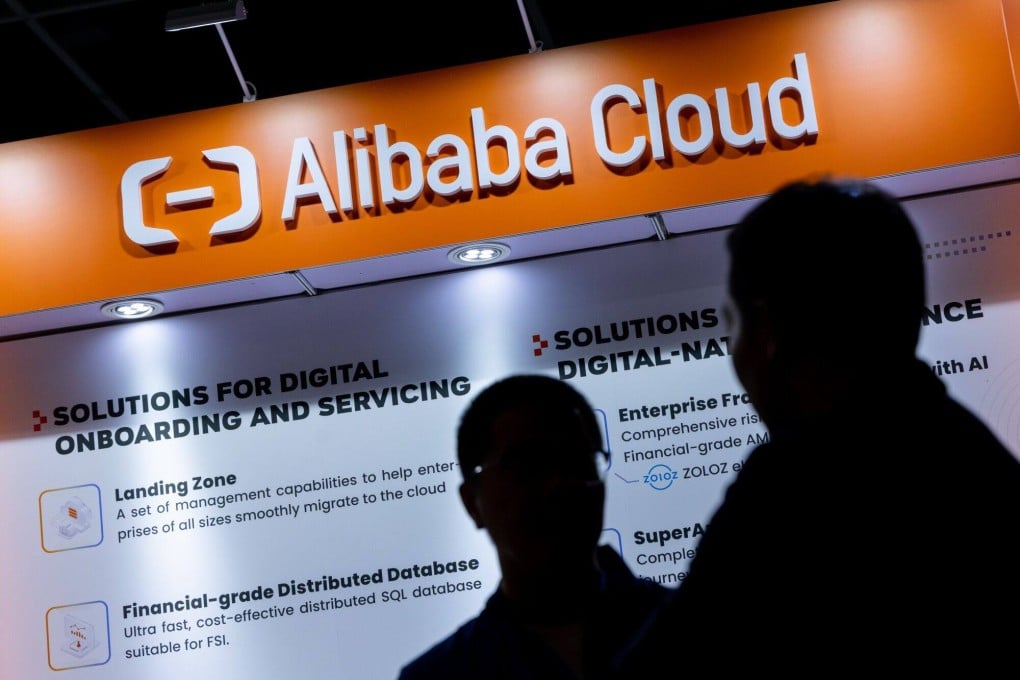China’s tech giants feel the pain from US ban on AI chips, outline plans to minimise impact on cloud computing business
- Alibaba said revenue from its AI training model and related services may be constrained in the foreseeable future due to the new export rules
- Tencent president Martin Lau said it will make the most of its AI chip supply by offloading inference work to lower-performance chips

Chinese tech giants, including Alibaba Group Holding and Tencent Holdings, are feeling the pinch of the latest US chip export controls, but have plans to minimise the impact, according to comments made by their respective CEOs in third-quarter earnings calls this week.
E-commerce titan Alibaba and Tencent, the social media and video gaming giant, both warned investors of the impact on their cloud computing business from stepped-up US export controls, which restrict certain advanced semiconductors and chip-making equipment from being sold to China.
This is the first time that Chinese Big Tech firms have publicly addressed the US export controls, which were strengthened last month with a new set of rules conforming to the “small yard, high fence” principle, aimed at hindering China’s abilities in AI and semiconductor manufacturing.
Both Alibaba and Tencent suggested they were evaluating ways to minimise the impact on their business growth.
“What we can certainly expect to see in the China market is that there will be multiple different chips being used, multiple providers, meeting demand for AI computing power in the market,” Alibaba CEO Eddie Wu Yongming said on the call.
